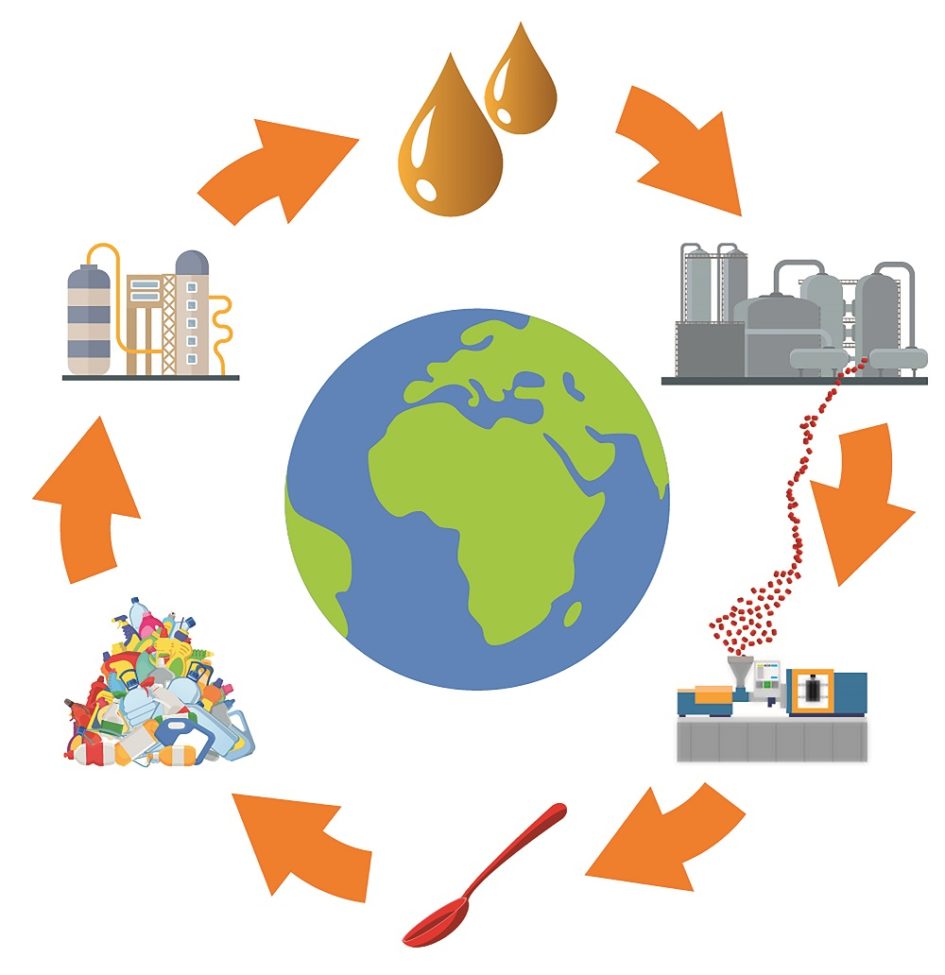Environmental protection is gaining more momentum today and plastic is a big part of this. Social transformation, responsibility for sustainability and the changes in our use of plastics are not going unnoticed by industry. Examples from igus, the motion plastics specialist, show how companies can use engineering and ecological innovations to tackle these issues.
More than 650,000 metric tons of lubricating oil was produced and imported into the UK in 2019. While used oil can be collected and reprocessed, an unknown proportion it finds its way into the environment. The dependence on oil for lubrication is not sustainable, a conclusion that igus made decades ago. Environmental pollution can be reduced by using iglidur plain bearing technology, thanks to the total absence of external lubricants.
In the largest motion plastics laboratory in the world, igus develops and rigorously tests tribologically optimised high-performance plastics for motion applications: plain bearings, ball bearings, spherical bearings, energy chains, cables, 3D printing materials and low-cost robotics based on plastics. The advantages of high-performance polymers are clear: additional lubrication is not needed because igus adds solid lubricants, among other agents, to the base polymers.
Needing no fluid lubricants also helps to make these motion plastics resistant to dust and dirt. For example, dirt cannot stick to the bearing, blocking it or causing it to fail.
Reduce microplastic particles due to abrasion-resistant plastics
In industry, and in the 15,000 tribological tests conducted every year in the 3,800 square metre test laboratory, igus motion plastics prove just how resistant they are to dust and wear. Less abrasion means less pollution frommicroplastics as well as much longer service life of the components and the machine they are running inside. If these components are also “intelligent”, predicting their service life during operation, routine maintenance and replacement are no longer necessary. The machine operator moves to a predictive maintenance regime; the energy chain, the cable or the plain bearing is replaced exactly when necessary. This can also increase the service life of the individual components in the application.
Using plastic also has an energy-saving advantage: only a fraction of the energy that is needed to produce a metal variant of a component is used to make the plastic version. Whereas the production of one metric ton of aluminium consumes 600 MJ of energy, and a metric ton of steel uses 320 MJ, plastic only requires 160 MJ per ton. And in the machines that use igus parts, the lower weight of polymer machine components means that less energy is needed for movement. For the P4.1 series of energy chains, for example, 57% less drive energy is needed to move the energy chain system than a traditional metal alternative.
Even the longest-lasting plastic part has to be replaced eventually, so how are these parts recycled? igus has severalecological and recycling initiatives.
The igus N54 polymer is the first standard plain bearing that consists mainly of biopolymers. At the same time, igus recycles 99%of the plastic waste in its own factory and reintroduces it in small quantities into the manufacturing process. In the UK, only about 43% of plastic packaging is recycled (British Plastics Federation) and as much of this goes into plastic granulate used for low grade secondary applications, the amount of plastic that is repurposed into viable products is much smaller.
While long-lasting plastic products such as energy chains are not comparable with single-use products, end-of-life disposal is still relevant. Normally, a chain is disposed of together with other plastics and recycling rarely occurs as the cost of separating the different materials for recycling into usable granulate is too high. So it is typical for factories to remove energy chains from their machines and throw them into industrial skips, where, in many cases, the waste isincinerated.
igus has launched an initiative, the “igus green chainge recycling programme”. The aim is to recycle the plastic specifically in energy chains and re-use it in new products. Operators send all their old plastic energy chains to igus,irrespective of the chain’s manufacturer, where they are sorted, cleaned, shredded, processed and recycled for re-use by igus or any company for the production of technical plastic products. In return, the customer receives an igus voucher. “With its green chainge recycling programme, igus is making a contribution towards the reduction of plastic waste and improvement of the recycling process”, says Justin Leonard, the-chain director at igus UK.
Several metric tons of energy chains were recycled in 2020 alone, and the plastic was then reused in a secondaryproduction process.
At the beginning of 2020, igus took a further important step in recycling. igus CEO Frank Blase says “The year before last, an article in the Frankfurter Allgemeine Zeitung drew my attention to catalytic hydrothermal reactor technology(HTR), and I then made contact with the German inventor, Professor Thomas Maschmeyer, in Sydney, Australia.” Seven months later, after intensive research, igus invested £4 million (EUR4.7 million) in Mura Technology Limited and in building the first Cat-HTR™ plant, after which it increased its investment to a total of EUR5 million in early 2021.
The patented catalytic hydrothermal reactor technology was developed in 2007 and tested in a pilot plant in Australia for 10 years. With Cat-HTR™ technology, plastic waste that was previously impossible to recycle economically can be converted back into oil within 20 minutes, a procedure that is far more resource-efficient than extracting of fossil fuels from the ground. Only water, high temperatures and pressure are used to separate the cells and join them again. One facility alone can process 20,000 metric tonnes of plastic per year, reducing CO2 output by 28,180 metric tons. This corresponds to the annual consumption of 5,983 cars or the annual energy needs of 4,914 households
The first commercial Cat-HTR™ plant, with four reactors, is currently being developed by Mura at the Wilton International industrial site in Middlesborough. In March, construction of the plant begins and it is due to start operating in the second half of 2022. Waste plastic is delivered by firms that want to achieve their recycling targets. Oil is then processed from the waste and can be bought at a price similar to commercial fuel oil. The plant will process more than 80,000 tons of plastic waste every year. Mura Technology has now contracted KBR as an exclusive licensed partner for further growth. KBR has 28,000 employees and is active in over 80 countries as a plant engineering contractor and operator of refineries and chemical factories, among other things.
“We are committed to the achievement of a state of balance in the world of plastics with the help of technical solutions”, says Frank Blase.







